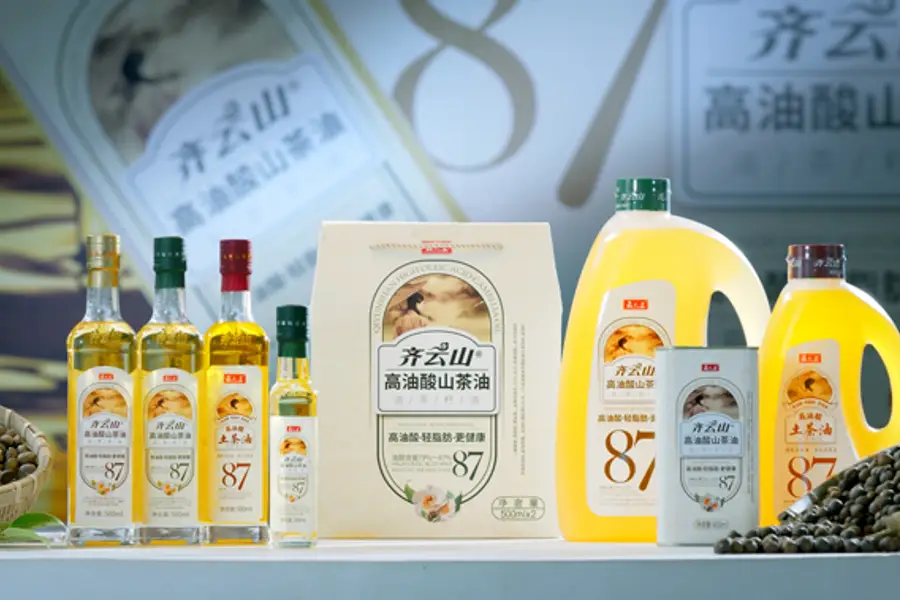Qiyunshan IPO tests investor appetite for Chinese fruit snacks

With 32% of its market for products using dried jujubes, the Jiangxi-based company is the latest Chinese snack maker seeking to go public in Hong Kong
Key Takeaways:
- Qiyunshan has become the second fruit snack maker to apply for a Hong Kong IPO in the last three months
- With 37% revenue growth and its profit more than doubling last year, the company says it has reached capacity and plans to use its IPO proceeds for expansion
By Edith Terry
Dried fruit-based snacks are a staple in China, and a small but growing number of their makers are hoping their stocks will be just as tasty for investors.
The latest of those, Jiangxi Qiyunshan Food Co. Ltd., filed last week to list on the Hong Kong Stock Exchange, just months after Liuliu Orchard Group filed a similar application in April. At just a third of Liuliu’s size in terms of revenue, Qiyunshan’s IPO is likely to be modest, though the company is also reporting some healthy growth that could attract investors.
Both snack makers are hoping to follow in the footsteps of Weilong Delicious (9985.HK), another snack maker known for its spicy peanuts, which has been on a roll since its listing in 2022. Since then Weilong’s shares have risen 35%, giving it a tasty trailing price-to-earnings (P/E) ratio of 29 and market cap of HK$35 billion ($4.5 billion). A similar ratio for Qiyunshan would value the company at about 1.54 billion yuan, based on its 2024 profit.
Despite its small scale and focus on a niche market for snacks based on “hog plums,” more commonly known as jujubes, Qiyunshan has strong potential as Chinese consumers increasingly look for healthy snack alternatives.
The company’s revenue jumped 37% year-on-year to 339.1 million yuan ($47.3 million) in 2024, and its profit of 53.1 million yuan was more than double the 23.7 million yuan it reported in 2023, according to its listing document. Its gross margin last year also looked quite savoury at 48.4%. It credited the strong revenue growth partly to the addition of a major new customer, as well as an increase in its offline distributors from 162 in 2023 to 199 in 2024.
Despite distribution largely limited to Southern and Eastern China, Qiyunshan has 32.4% of China’s jujube snack market, which was worth 1.88 billion yuan last year. It’s also China’s ninth largest fruit snack maker with 0.6% of the market that was worth 99.5 billion yuan in 2024, according to third-party market data in its listing document.
China’s jujube snack segment grew at an average annual rate of 13.7% between 2019 and 2024, outpacing average annual growth of 8.5% for the overall fruit snack market during that time. Both of those rates are well ahead of the 4.4% average annual growth rate for an overall Chinese snack market that was worth 1.34 trillion yuan last year, showing how fruit snacks are gaining popularity among increasingly health-conscious consumers.
Although several varieties of jujubes are available outside China, consuming the fruit as a dried snack may be unique to Chinese. Qiyunshan specializes in a type of jujube called chongyi choerospondias axillaris, known locally as the Nepali hog plum due to its use as an inexpensive fruit to fatten hogs. The tart fruit can be eaten fresh and is similar in size to a small plum.
Outside China, the Cleveland Clinic and others describe jujubes as a super food due to its strong nutritional value, including richness in antioxidants and vitamin C. Within China, the fruit is a staple of traditional Chinese medicine used to treat anxiety and insomnia.
Boosting capacity
Qiyunshan buys its jujubes from individual farmers, rather than maintaining its own orchards. The average procurement price from local farmers has remained almost constant, at around 4 yuan per kilogram over the last three years. Almost all of its distribution is offline, though the company also has online stores on popular e-commerce platforms like Tmall, JD.com and Douyin.
Qiyunshan is hoping to boost its online sales, and says it plans to use some of its IPO proceeds to develop e-commerce infrastructure and for online promotion. It also plans to use some of the funds to expand its capacity to take advantage of China’s growing appetite for the snack.
The company’s single factory, in Jiangxi’s Chongyi county, was producing at full capacity between November and December 2024. To accommodate growing demand, Qiyunshan hopes to boost its capacity by 45.5% to 16,000 tons, roughly double its output of 8,348 tons last year. The company also plans to increase its cold storage capacity, needed because jujubes are harvested between August and December and need to be stored prior to processing.
“If our products become more popular, our production capacity would be unable to cope with the demand from customers and would hinder the potential growth of our company,” Qiyunshan said in its filing.
The company boasts a long history with a factory dating back to 1979. It acquired the Qiyunshan trademark, which comes from a locally famous mountain, in 1990. Its three principal owners are brothers Liu Zhigao and Liu Jiyan, as well as Zhu Fangyong.
The company was under a form of state-controlled, collective ownership until the late 1990s, when 51 employees bought its assets and founded Qiyunshan as a Sino-foreign joint venture with a Hong Kong company, Huachang Enterprise. In 2022, Huachang transferred its shares to a limited partnership owned by 11 individuals, including the six core management shareholders. Qiyunshan converted to a joint stock ownership company this year in preparation for the listing.
Qinyunshan and Liuliu Orchard join a long and growing line of Chinese companies aiming to list in Hong Kong, as the local IPO market booms after several quiet years. New Hong Kong listings raised $13.5 billion in the first six months of this year, up eightfold from a year ago, making the city the world’s biggest IPO market during the six-month period.
The city has benefitted partly from a growing preference by Chinese companies to list in Hong Kong, as they avoid New York over geopolitical tensions between the U.S. and China. The Chinese securities regulator has also limited new IPOs on the A-share markets in Shanghai and Shenzhen, and tends to give preference for new listings to companies in growth industries like new energy and semiconductors.
To subscribe to Bamboo Works free weekly newsletter, click here




